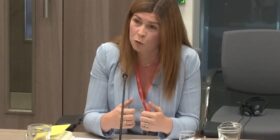Getting Legal Help With Child Access Arrangements in North Wales

When parents separate, arranging how children will divide their time between households can become one of the most challenging aspects to navigate. Child access arrangements, sometimes called child contact or residence arrangements, establish how children will maintain relationships with both parents after a separation. These agreements cover everything from where children will live to specific visitation schedules and holiday arrangements.
For families in North Wales, finding the right legal support for these sensitive matters is very important. The family court system puts children’s needs first. Knowing the legal framework and options can feel overwhelming during an already difficult time. Many parents initially try to reach agreements informally, but when communication breaks down, professional legal guidance becomes necessary.
Legal professionals specialising in family law can help parents understand their rights and responsibilities while focusing on solutions that truly serve their children’s best interests. From mediation services to court representation when required, the right support can make a noticeable difference in reaching arrangements that work for everyone involved.

What are child access arrangements under UK family law?
Child access arrangements form a key part of UK family law. They set out how children will spend time with each parent after separation. The Children Act 1989 provides the legal framework for these arrangements. This law puts the welfare of children first in all decisions.
Parents can make these arrangements privately or through court orders. Private agreements work well when parents can communicate effectively. Court orders become necessary when parents cannot agree or when there are safety concerns.
These arrangements cover where children will live, when they will see each parent, and how holidays will be shared. They also address who can make important decisions about education, healthcare, and religion.
Family courts in Wales handle approximately 3,500 child arrangement cases each year. These cases arise when parents cannot resolve contact schedules or living arrangements independently. Clear, structured plans help reduce conflict and provide stability for children. A directory of firms providing regional support, such as Stowe Family Law, can help those seeking legal assistance.
The law recognises that children benefit from relationships with both parents unless there are safety concerns. Courts consider factors like the child’s wishes, their needs, and any risks when making decisions.
How to navigate the family court process in North Wales
The family court system in North Wales operates through several main locations. The main family courts are in Wrexham, Caernarfon, and Prestatyn. These courts handle all types of family cases, including child arrangements.
Before applying to court, most parents must attend a Mediation Information and Assessment Meeting (MIAM). This meeting helps parents learn how mediation might help them reach an agreement without court involvement. Only certain cases, such as those involving domestic abuse, are exempt from this requirement.
If court becomes necessary, the process begins with completing a C100 form. This form asks for details about the children, parents, and the orders requested. After submitting this form and paying the fee, the court will set a date for the first hearing.
The length of the family court process varies based on each case’s circumstances. Simple matters may progress quickly, while complicated situations can take longer.
CAFCASS Cymru plays a central role through its efforts to safeguard children’s interests. They meet with parents, interview children, and sometimes work with schools or local agencies. This helps build a thorough picture for the court about arrangements that serve the child’s welfare.
Preparing for court hearings
When attending family court, proper preparation is important. Gather all relevant documentation, including previous agreements and communication records. School reports and medical records can demonstrate a parent’s relationship with their child.
Position statements are brief documents that set out a case and specify what someone is asking the court to decide. Judges look for clear statements that address the child’s needs rather than focus on disputes between parents. These statements should be prepared before every hearing and shared with all involved parties.
If legal representation is not affordable, self-representation remains possible. The court provides procedural guidance, but individuals should know the relevant laws and prepare detailed statements. Free resources, such as Citizens Advice and court support services, can help those handling proceedings without formal legal support. Family law offices often provide initial consultations to clarify options.
Initial consultations with a legal professional often give individuals clarity regarding the court process. These meetings can help anyone considering self-representation or seeking direction before moving forward.
Alternatives to court for resolving child access disputes
Families in North Wales can take advantage of several proven options outside the courtroom. Mediation offers a structured way for parents to communicate with a neutral facilitator. This process encourages productive discussions around contact patterns and special arrangements. Mediators help parents build written parenting plans that can be made legally binding if both parties agree.
Collaborative law provides another effective pathway. Both parents instruct solicitors trained in this approach and sign an agreement not to go to court unless talks break down. Meetings focus on practical problem-solving with the joint goal of creating arrangements that suit the child’s needs.
Direct solicitor negotiation helps parents who need more distance to address disputes through formal communication between legal representatives. This approach separates difficult emotions from decision-making. When negotiations lead to agreement, the arrangements are recorded to help avoid future confusion.
Parent coordination services offer ongoing support, especially after agreements are in place. A coordinator helps manage communication and adjust routines as children grow. This prevents minor misunderstandings from turning into larger disagreements that might otherwise require court involvement.
When mediation might not be appropriate
In cases involving domestic abuse, mediation is typically not recommended. The court system provides special measures to protect vulnerable parties. Those with safety concerns should speak with a solicitor about exemptions from the MIAM requirement and protective court orders.
Situations involving substance misuse or serious mental health issues may also require court intervention. These cases often need professional assessment and court-ordered safeguards to ensure children’s wellbeing.
International relocation disputes, where one parent wishes to move abroad with the children, usually require court decisions. These difficult cases involve jurisdiction questions and international law considerations that mediation alone cannot address.
When previous agreements have been repeatedly broken, enforcement through court may be necessary. The court can attach warnings or penalties to orders to ensure compliance when informal resolution has failed.
Practical considerations for implementing child arrangements in North Wales
North Wales geography brings about unique challenges for child arrangements. Urban centres like Wrexham offer services close together, but families in rural areas like Snowdonia or Anglesey must account for distance. Travel times can extend during winter months when certain routes become unreliable. Weather disruption or public transport issues can affect handover times and school runs.
Parents may need to alter contact schedules around these challenges. Longer but less frequent contact periods can help children avoid tiring journeys on school nights. Agreed meeting points near schools or accessible to both parents make transitions more manageable.
Welsh language use matters for some families. Children attending Welsh medium schools benefit from consistent language support in both homes. Both parents should have resources in Welsh and understand the importance of supporting language development, especially if other relatives are involved in care.
Different term dates between Welsh and English schools in border areas can cause confusion over holiday arrangements. Reviewing the school calendar together each year helps parents avoid missing special events or overlapping planned time-off.
Technology helps manage family arrangements after separation. Co-parenting apps allow parents to record schedules, note changes, and log expenses. This digital record offers clarity if disagreements arise and helps maintain consistent routines.
Children with medical conditions or disabilities require special attention. Both homes need appropriate care arrangements. Detailing these specifics in writing ensures both parents understand what needs to happen and when, supporting consistency for the child.
Spotted something? Got a story? Send a Facebook Message | A direct message on Twitter | Email: [email protected]Latest News









